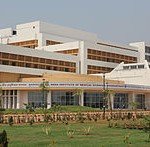Simple program that makes a life changing difference
The Scholarship Program provides financial and other assistance to students for their higher education in India. Assistance is available to any qualified student, irrespective of the applicant’s caste, community, gender or religion. To qualify for a scholarship, an applicant must be studying in a course approved by the Foundation and meet specified eligibility criteria.
The primary focus of the Scholarship Program is to assist students for studies in professional courses leading to degrees in engineering, technology, or medicine.
Brilliance needs to be nurtured, We do just that.
New, first time applicants are eligible to apply for a scholarship only when they are in the first year of a professional degree course in engineering, technology or medicine. To qualify for a scholarship, applicants must meet certain academic excellence and family income requirements.
Academic Eligibility Criteria
The academic eligibility criteria for professional courses in engineering, technology and medicine are:
Only the professional degree courses BE/B Tech, Integrated 5-Yr Dual-Degree M Tech and MBBS are eligible for scholarships. Diploma students admitted to BE, B Tech courses on a lateral basis, B Arch, BDS & B Pharma students are not eligible.
Only first year applicants beginning their studies in BE, B Tech, Integrated 5-Yr Dual-Degree M Tech or MBBS in the academic year 2015-16 are eligible.
The applicants should have passed their Higher Secondary/Pre-University/Intermediate/ CBSE/ISC or equivalent board qualifying examination not earlier than in 2014.
The applicants should have scored not less than 70% marks at the qualifying examination.
The applicants’ admissions to their professional degree courses/institutions should be on the basis of the open/general merit rank awarded to them at the state or national level entrance tests or through a counseling process conducted at the state level (as in the case of Tamil Nadu), as per the table given below.
Maximum eligible ranks for entrants to professional courses in AY 2015-16
Course Category and States Maximum Eligible Rank
Engineering and Technology (BE, B Tech) Courses
Maharashtra, Madhya Pradesh, Haryana, Gujarat, Odisha, Punjab, Uttarakhand and Nagaland – JEE (Main) (Overall All India Rank – Not State or Category Rank) 1,00,000
For students joining the IITs, the eligibility/selection cutoff criteria will be the total marks scored at the JEE (Advanced) by the last ranked General Category student admitted.
Andhra Pradesh, Telangana, Tamil Nadu, Uttar Pradesh and Karnataka 7,500
Rajasthan, Kerala, Punjab, West Bengal and Chattisgarh 4,000
Himachal Pradesh, Delhi, Puducherry, Jharkhand, Bihar, Assam and Jammu & Kashmir 1,000
Goa, Chandigarh, Sikkim, Meghalaya, Tripura, Arunachal Pradesh, Manipur and Andaman & Nicobar Islands 500
Medicine (MBBS) Course
Applicants admitted based on National Level Tests like AIPMT (Rajasthan, Madhya Pradesh, Delhi, Odisha, Haryana, Chattisgarh, Himachal Pradesh, Manipur, Jharkhand, Chandigarh, Meghalaya, Arunachal Pradesh and Andaman & Nicobar Islands), AIIMS, BHU PMT, JIPMER, etc., will be considered on the basis of their respective merit marks and ranks.
Karnataka, Maharashtra, Andhra Pradesh and Tamil Nadu 1,200
Uttar Pradesh, Kerala, Gujarat, West Bengal, Bihar, Punjab and Puducherry 500
Assam, Jammu & Kashmir, Uttarakhand, Tripura, Goa and Sikkim 150
The above state-wise rank cut-off limits are based on the official seat intake capacities of the various states as authorized by the AICTE (All India Council of Technical Education) for degrees in engineering/technology and by the MCI (Medical Council of India) for degrees in medicine.
Family Income Criteria
The gross family income criteria is Rs. 1,80,000 per year. Gross income refers to the income before deductions for taxes or other purposes.
In addition to gross family income, the education and occupation of parents as well as family members including elder brother(s) and sister(s), the family’s living conditions and the total expenses being incurred by the family on the applicant’s education will be taken into consideration for determining the financial eligibility of an applicant.
Applicants who are the first graduates of the family will be preferred over applicants who are the second or third child of the family taking up graduation.
Where parents of applicants are employees, a salary/pay slip from the employer is mandatory. The salary/pay slip should clearly show the family member’s gross monthly salary with full details of his/her basic salary and all allowances and deductions. The employer and the facilitator should certify the salary/pay slip. Submission of an Income certificate from a local or other government authority in lieu of a salary/pay slip is not acceptable.
Where parent(s)/guardian(s) are retirees/pensioners, a pension statement from the pension authority and/or from an authorized bank showing the gross monthly pension of the family member, inclusive of any supplementary allowances and before any deductions is required. Pensioners should also provide documents to show the official status or designation, gross salary drawn at the time of retirement and the name of the employing organization. If the parent/guardian has recently retired under a voluntary retirement scheme, reasons for retirement, and amount of lump sum benefits received on retirement should be disclosed.
Where parent(s)/guardian(s) are in business or self-employed, income certificate issued by any government authority or the income tax return should be submitted in support of the gross family income specified in the application. Specific details of the nature and size of the business or self-employment should also be provided.
Where parent(s)/guardian(s) are agriculturists or have farming or cultivation as their source of income, an income certificate from a recognized or competent authority should be submitted. Details of the nature and size of the land holding, crops grown, etc. wet or dry land irrigation should also be provided.
Apply Online
http://www.ffe.org/programs/online-application-form.php
http://www.ffe.org/programs/index.php
